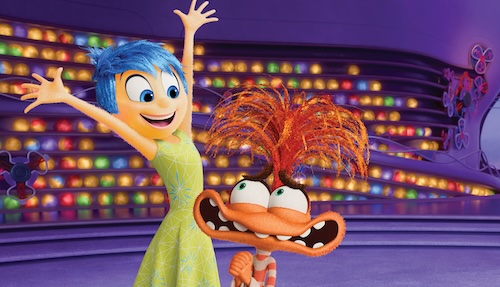
We're getting under the skin of the big screen experience, examining its ability to lift us out of reality and into extraordinary worlds. Writer and critic Tara Judah explores what it means to share the cinema experience with her children, how it shapes formative memories and what it means for parents to witness the big-screen experience through the eyes of their kids.
For as long as I can remember, cinema-going has been the love of my life. As a child of the 1980s, I saw Star Wars and The NeverEnding Story with my family. As a teenager, I took my mum to Sunday afternoon matinees before brunch. When I was old enough, I went with my cousins to see the scary stuff.
Whatever was showing, sharing big screen experiences with my family was formative for me. The adage of the ‘magic of the movies’ – that indefinable something special that can’t be replicated at home – exists, not just because the movies have Dolby Atmos.
Beyond the impressive, immersive image and sound – superior, no matter how good your home setup is – the real magic of the movies comes from its ability to build intimacy. The shared sensory experience of cinema-going is also a form of emotional memory-making that has the potential – to borrow from this year’s biggest animated hit movie, Inside Out 2 – to build core memories and even contribute to the fabric of our complex sense of self.
As a child, no matter what movie I went to see, I always felt safe at the cinema, because I was there with the people who loved me most. Now, as a parent, I take my own children to see all kinds of movies (ratings relevant, of course), knowing that each visit to the cinema is one more future memory made.
From introducing the very concept of narrative and storytelling to helping with complex emotional processing and conflict resolution, cinema-going is not just the love of my life anymore – it’s the love of our lives, together.
At age five, my son has already seen countless films, the first when he was a babe in arms, unaware of the story unfolding before him but mesmerised by the dancing images and surround sounds.
Held close for those first few months, before being sat on my lap, and now, with the help of a booster seat, next to me, sharing popcorn, we’ve watched plenty of heroes and villains, actors and animations, all embarking upon emotional character arcs that explain and give context to all manner of ups and downs.
Already in sync with the rhythm of movies, my children are happy to see both live-action and animated stories – Wonka held our attention just as well as Migration did. But I have had friends ask if my son gets scared at the cinema – it’s big and loud and sometimes the characters or stories might be too nuanced or sophisticated for under-fives.
While some storylines go over his head, and it’s a bigger sensory experience than watching anything at home, he loves it. A firmly baked-in family tradition, going to the movies is about what we see and how we see it, but, more importantly, it’s never been a substitute for parental attention.
We love it because we do it together: holding hands if there’s a scary bit, talking on our way home all about what we enjoyed and anything we didn’t understand. I loved it as a child and it’s shaped me, too, helping me develop problem-solving skills just like Luke and Leia.
Children, much like adults, do have the capacity to understand and face conflict, so long as there’s a relative resolution: all humans love storytelling, and every movie has its ending.
When my children and I go to the cinema, we play out a mini replication of the classic three-act structure of most movies: 1) there’s the set-up and anticipation building: choosing the film, our seats (always the front row) and our snacks (giant popcorn), as every trailer promises us more memory making to come; 2) something dramatic happens: watching the movie; and 3) a resolution is found: everyday life resumes.
But there are some movies, some experiences, that transcend even the three-act structure that holds them. The movies don’t make us, but there are the occasional few that shape how we understand who we are. Inside Out 2 did this, not just for the children, but for me, too.
Having watched the first Inside Out, the characters and concepts were familiar, and we were all looking forward to seeing the sequel. But as Joy, Sadness, Anger, Fear and Disgust appeared before us on the big screen we were humbled: our emotions are so much bigger than us, and even though they start in the home, they extend beyond our safest spaces and out into the wider world.
As Anxiety, Embarrassment, Envy and Ennui appeared onscreen, the enormity and expanse of emotions explored in the film elevated and intensified, and I realised just how much my family has yet to learn about ourselves and each other.
What’s most fascinating to me is that my children and I are not just seeing films together, but developing our emotional growth, too. Sometimes, children’s films hit adults harder than they do the kids they’re aimed at. Tears poured down my cheeks as I remembered what it was like to hit puberty and as I wondered what it would be like for my two tiny toddlers.
Watching Anxiety take over, literally pushing Joy aside, the movie speaks clearly and directly to our sense of self: who do we want to be? When we grow up, will we still indulge in Goofball Island, or will we watch it die?
After we left the cinema, my partner asked my son what he thought of the movie: “It was fantastic!” he beamed, filled only with Joy from the experience. Tinged with Nostalgia – who I can’t wait to meet properly in a future installment – I felt Joy, too.
Tinged with Sadness and now a touch of Anxiety, it was a more complex emotion than my son’s, but most importantly, having experienced them together, we both built core memories that day, ones that contribute to who we are and our innate sense of self.
Inside Out 2 is now on release at Cineworld. Make it a cinema visit to remember with the Cineworld Family Ticket and be more childish together. Click the link below to book your tickets.
Tara Judah is an editor at Senses of Cinema and a postgraduate researcher at the University of the West of England, researching the role of independent cinema in the age of on-demand culture
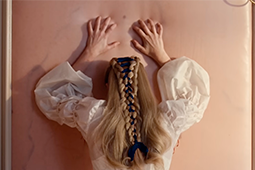
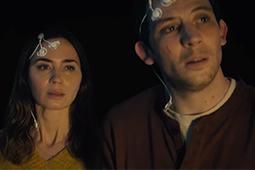
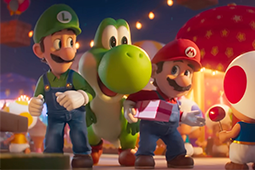
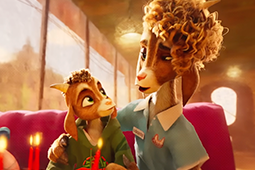
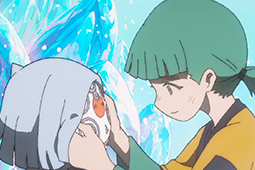
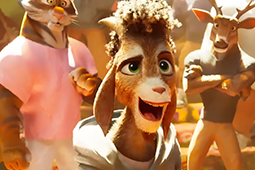
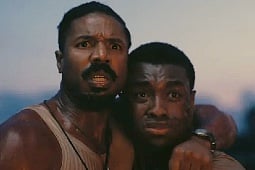
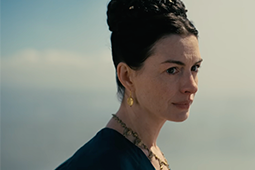

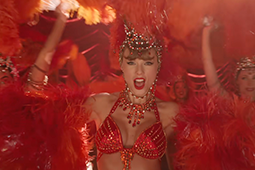
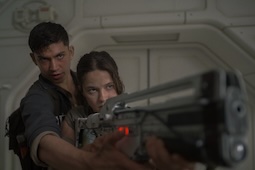


.jpg)
.png)





